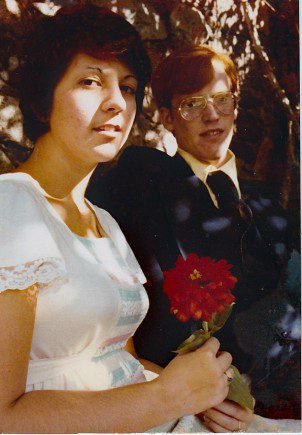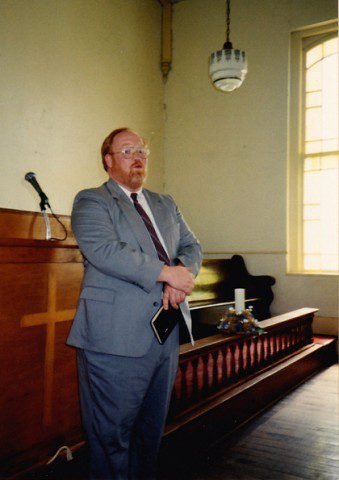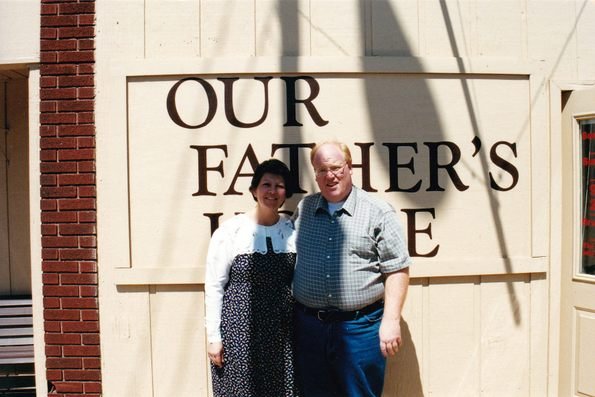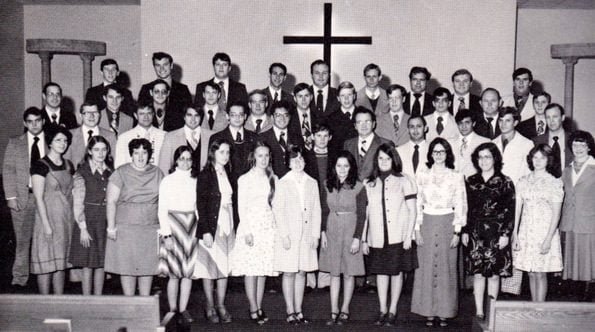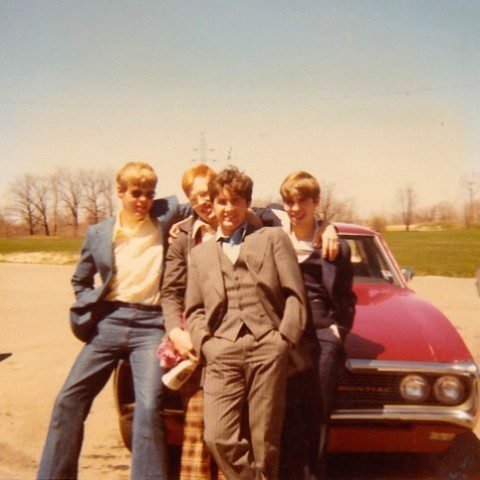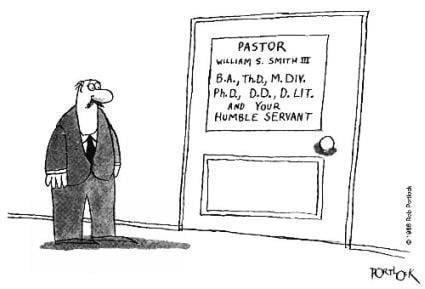
People raised in Independent Fundamentalist Baptist (IFB) churches have heard countless sermons on what the Bible says about sex. Teenagers are warned about the dangers of petting, and many IFB churches forbid unmarrieds from having any physical contact with each other. Young men are characterized as weak horn-dogs and young women are viewed as gatekeepers who are responsible for any untoward sexual advances made by sexually aware men. Young women are given strict orders concerning how to dress and behave to ward off young men from having sex with them. One thing is certain: if a young IFB woman has sex with a man, it is almost always her fault.
IFB churches often have lengthy and complex rules that are used to keep unmarrieds from having sex. These rules follow young adults to the IFB colleges they attend. Here we have institutions filled with eighteen- to twenty-five-year-old men and women who, with hormones raging, are expected to refrain from physical contact with the opposite sex. This includes: no holding hands, no kissing, no hugging, no putting one’s arm around another, or sitting too closely to someone of the opposite sex. My wife and I attended Midwestern Baptist College in the 1970s. We were expected to maintain a six-inch distance from each other at all times. Even after we married, we were expected to refrain from public displays of affection lest we cause unmarried dorm students to “sin.” (Please see Thou Shalt Not Touch: The Six-Inch Rule.)
One would think that IFB pastors and college leaders would approve of masturbation as a way of dealing with pent-up sexual frustration. Unfortunately, masturbation is also a sin. As an IFB teenager, I heard pastors who warned church teens about the dangers of masturbation, including, — oh yes they did! — warning that masturbation will make you blind. Now lest you think it’s just crazy IFB preachers who have a problem with masturbation, consider this quote by Evangelical pastor Mark Driscoll:
First, masturbation can be a form of homosexuality because it is a sexual act that does not involve a woman. If a man were to masturbate while engaged in other forms of sexual intimacy with his wife then he would not be doing so in a homosexual way. However, any man who does so without his wife in the room is bordering on homosexuality activity, particularly if he’s watching himself in a mirror and being turned on by his own male body.
And then there’s this excerpt from The Village Church’s website:
If one was [sic] to scan the horizon of current evangelical thought he or she would find a number of conclusions on the matter of masturbation. There are some who would claim that it is inherently neutral or even innately good and thus would teach that it is an appropriate way to express gratitude for sexual desire. Others would say that it is a veiled form of homosexuality, or that it is a clear violation of God’s law and thus always sinful. The spectrum is wide and the positions are quite varied.
Scripture never overtly addresses the issue of masturbation and thus any non-careful treatment of this topic must be avoided. If we define sin merely as transgression of God’s law then we might conclude that since Scripture does not explicitly prohibit the particular act of masturbation, it must therefore be non-sinful. However, sin is not merely transgression of the Scriptures, but also a transgression of the character and intent of God. As marriage is the only God-ordained means of expressing sexual intimacy, it would seem perfectly acceptable to declare masturbation a sinful act. This paper will seek to specify some common wisdom regarding masturbation and then commend a few questions which must be considered to faithfully examine the act.
- Sexual immorality is specifically declared to be sinful.
- Lust is specifically declared to be sinful.
- Masturbation does not typically quench sexual desire, rather it intensifies it. As with most things, the more you feed it, the more it grows. In general, masturbation becomes habit forming and enslaves us to desires for greater sexual relief through greater self-indulgence rather than greater self-control. While the Spirit produces in us the fruit of self-control, the flesh desires indulgence and release. Self-control is not ascetic discipline, but is instead the response of a proper understanding of God’s creative design for our bodies.
- Masturbation is outside of God’s intended design for sexual relations. Sex was created to be experienced between a man and woman who are joined together into the one flesh relationship of marriage; masturbation is taking the sexual desire reserved for this relationship and seeking to fulfill it through our own means. Masturbation sets a very destructive pattern for marriage. It places the emphasis on self pleasure rather than the desire for two to experience the fulfillment of sexual union together.
- Masturbation is typically lustful – whether that be overt lust direct toward another or a lustful desire for relief.
- Masturbation does not typically stir our affections for the Lord, rather it robs them.
….
It seems to the pastors and elders of The Village Church that masturbation is prohibited for a couple of reasons. First, we would prohibit the act based upon the provision of marriage as the only appropriate institution in which to express sexual intimacy. If you burn with lust or desire sexual intimacy, get married (1 Corinthians 7:9). Such is the gracious and holy prescription for sexual desire, the only prescription afforded by the Creator of all good desire. Second, we would counsel abstinence due to the overwhelming and innate relationship between masturbation and lust. Lust is extremely serious and not to be taken lightly, dismissed, or played with.
…
The Village Church is a Southern Baptist megachurch pastored by Matt Chandler. Chandler is also part of The Gospel Coalition — a Fundamentalist group with Calvinistic leanings. Men such as Danny Akin, Alistair Begg, Bryan Chapell, Mark Dever, Kevin DeYoung, Ligon Duncan, Kent Hughes, Erwin Lutzer, Albert Mohler, Russell D. Moore, David Platt, John Piper, Philip G. Ryken, and Sam Storms are/were members, as were the infamous Mark Driscoll and C.J. Mahaney. I can safely say that all of these men likely approve of Chandler’s anti-masturbation message. Ironically, Chandler is currently on “leave” from his church for having an inappropriate online relationship with a woman.
Jason DeRouchie, a professor at Midwestern Baptist Theological Seminary, also believes masturbation is sinful. DeRouchie, writing for the Desiring God website, says:
Many medical professionals treat masturbation as a natural part of human development, and some church leaders have attempted to supply practical and theological reasons to masturbate. From a biblical perspective, however, I do not believe this approach pleases God, and I have seen the devastation that such a practice brings to both singles and marrieds alike.
….
When people reach orgasm outside the covenant-confirming act of lovemaking in marriage, the act becomes solely self-seeking, divorced from its purpose of creating intimacy. Sexual expression through orgasm should be an overflow of a desire for a spouse, not merely for a feeling or experience.
….
As noted, orgasm outside the marriage bed removes the relational, intimate nature of sexual expression, which is at the core of its purpose (1 Corinthians 7:2–3, 5). Refraining from masturbation helps to purify one’s appetites (1 Corinthians 9:27). It helps to ensure that a person’s desire to make love with his or her spouse is for nurturing covenantal intimacy through service and honor, and through receiving love from him or her (Matthew 20:28; John 13:14–16). It reminds couples that their spouse is not given as an object to be exploited, but rather as a covenant partner to be provided for, protected, and respected (Ephesians 5:25, 28, 33; see also Genesis 2:24).
….
Masturbation outside the marriage bed does not glorify God because evil desire always fuels it.
Whatever we do — including all forms of sexual expression — we are to “do all to the glory of God” (1 Corinthians 10:31). Whether tagged as covetousness, lust, or sensuality, misplaced and mistimed desires do not glorify God, and failure to glorify God is always sin (Romans 3:23; 14:23). Paul thus charges, “Glorify God in your body” (1 Corinthians 6:20).
In God’s good design, marital love is the only justified context for one to enjoy a sexual craving for orgasm, for only in this sphere does one glorify God by pointing to the beautiful union of Christ and his church (Ephesians 5:31–32). From this perspective, evil desire fuels all sexual expression outside the marriage bed, including masturbation, so we must treat all such acts as sinful and as deserving of hell (Matthew 5:29–30; Mark 7:20–23; 1 Corinthians 6:9–10; Galatians 5:17, 19–21; Ephesians 5:5; Colossians 3:5–6).
….
Jesus urged his followers to guard themselves from lustful masturbation, and Paul called Christians to control their sexual parts in holiness and honor.
Only “the pure in heart . . . shall see God” (Matthew 5:8). Jesus appears to link masturbation with lust when he declares that looking at a woman with lustful intent is sin, and then charges his disciples to take extreme measures with their eyes and hands, so that they will preserve themselves unto life (Matthew 5:27–30). Similarly, Paul stressed that holiness seen in sexual purity was God’s will for every person, and then he urged believers to control their sexual parts in holiness and honor rather than in lust.
Masturbation outside the marriage bed witnesses a lack of self-control and is therefore sin.
Self-control is a new-covenant fruit of the Spirit (Galatians 5:22–23), a discipline that pleases God, nurtures hope for eternal life, and frees one from fear of future punishment (Romans 8:6–9, 13; 2 Timothy 1:7). Lack of self-control is sin and enables greater influence by the evil one (Proverbs 25:28; 1 Corinthians 7:5). Intentional orgasm outside the marriage bed through masturbation witnesses a lack of self-control and is therefore sin.
….
In light of these realities, I believe that anyone who masturbates outside the marriage bed sins and insults God’s glory in Christ. As men and women of God, therefore, may we not engage in it. Instead, may we look to our Lord for help and seek to honor him with our bodies by allowing our only outlet for sexual desire to be the covenant-nurturing intimacy of marital lovemaking (Job 31:1). May we also intentionally lead our children in such paths of righteousness for Christ’s name’s sake.
….
Please look up all the Bible verses given by De Rouchie. I’m sure you’ll want to immediately refrain from masturbating lest God tosses you in Hell for doing so.
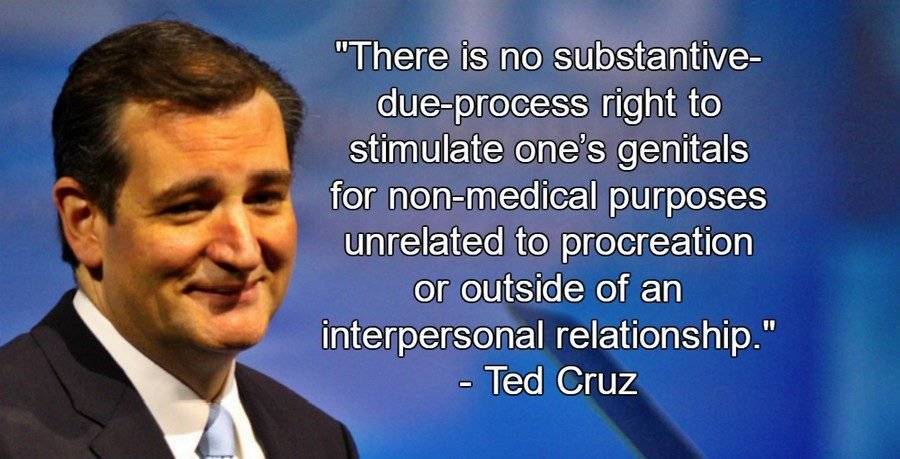
And finally, here’s what Focus on the Family has to say about masturbation:
The point, as we see it, is the larger meaning and purpose of human sexuality. The Bible has two important things to say about this: first, sex is central to the process by which husband and wife become one flesh (Genesis 2:24); and second, sex and marriage are intended to serve as a picture or symbol of the union between Christ and His Church (Ephesians 5:31, 32). Sex, then, isn’t intended to be “all about me.” Rather, it’s designed to function as part of the give-and-take of an interpersonal relationship.
These theological perspectives should inform and shape our approach to the practical problem of masturbation. It’s important that we avoid heaping guilt on teenagers who find the urge to masturbate almost uncontrollable, and who might be driven to spiritual despair as a result. At the same time, we should do everything we can to help adolescents, young adults and married couples see that self-gratification is inconsistent with the purpose, goal and basic nature of sex. We shouldn’t condemn anyone for masturbating, but neither should we encourage them to continue in the habit. Why not? Because God has created men and women to experience sexual fulfillment on a much higher level – within the context of a marital relationship – and we don’t want anything to jeopardize their chances of knowing that joy to the fullest extent.
In connection with this last thought, it’s important to add that masturbation, due to the powerful hormonal and psychological components of human sexual behavior, can often become extremely addictive. Individuals who fall prey to this addiction may end up carrying it with them into adult married life, where it can become a serious obstacle to healthy marital intimacy. Further, masturbation is frequently involves indulging in sexual fantasy; and fantasy, if we are to believe the words of Jesus (Matthew 5:28), does represent a very serious breach of a person’s mental and spiritual purity.
What can be done to break this pattern? In many cases, masturbation originates as a self-soothing behavior. In other words, it’s a way of coping with pressures and seeking to meet the basic human need for peace, security, comfort and reassurance. If you have a problem with masturbation, you may want to keep this in mind and ask yourself whether it might be possible to replace this negative behavior with a more legitimate method of addressing the underlying need. For example, by talking things over with a friend, reading an engaging book, listening to music, pouring yourself into a constructive project or serving other people. Ultimately, the pain a person is trying to anesthetize through the practice of masturbation is just another manifestation of the “God-shaped vacuum” that exists at the center of every human heart. Only a relationship with the Lord can fill that empty space in a deep, lasting and satisfying way.
….

Yet, for all their preaching against the sin of Onanism, virtually all Evangelical teens, young men, and even married men, masturbate. I can’t speak to the level of masturbation among Evangelical women, but I suspect there is a lot more ringing of the devil’s doorbell going on than church leaders think there is.
Being raised in an anti-masturbation church environment caused quite a bit of problem for me as a teen and unmarried adult. Despite all the preaching against touching the opposite sex, when given the opportunity to make out with my girlfriend (or fiancée), I did so lustily. While I was a virgin when my wife and I married, I found myself rounding third and heading for home not only with Polly, but also with a girl named Anita. (The rest of my dating relationships were casual and of short duration.)
I was eighteen years old when I started dating Anita. She was twenty, a college student at a Conservative Baptist college in Phoenix, Arizona. Anita and I, for five short months, had a torrid relationship. She was much more experienced sexually than I was. On more nights than I can remember, we would park along a dark, rarely-travel back road and watch the night sky. Of course, we also did a lot of necking. Our intimacy stirred my sexual passions to such a degree that I would go home after dates and spend time praying to God for forgiveness, thanking him for not allowing us to give into our sexual desires. For me, not giving in included not masturbating. Anita and I later went our separate ways, but I’ll never forget the time we spent together.
Polly and I met as freshmen at Midwestern Baptist College in Pontiac, Michigan. I was nineteen, she was seventeen. I planned on playing the field at college, but meeting Polly changed everything. I was quickly smitten by her beauty and quiet demeanor, and thus began our two-year battle with Midwestern’s Puritanical dating and physical contact rules. We refrained from breaking the rules for a time, that is until I went to visit Polly at her parent’s home in Newark, Ohio over Christmas break (1976). It was there, in Polly’s parent’s apartment complex laundry room, that we had our first kiss. Dating students were expected to keep the rules even during Christmas and summer break. No one, and I mean no one, did so.
Once back at Midwestern, Polly and I were faced with a dilemma. We wanted to continue touching and kissing each other; you know, as dating teens and young adults are wont to do. This meant we would have to secretly break the rules. We sought out couples to double-date with who were not averse to physical contact on dates. The vast majority of dating students — with but a handful of exceptions — broke the rules. Some students even slid into home and had sexual intercourse.
The Midwestern dorm was a den of raging hormones. With masturbation forbidden and touching the opposite sex grounds for expulsion, what were dating students to do? Why, they broke the rules with impunity, causing a repeating cycle of “sin,” guilt, repentance, and promises to God. I don’t know of anyone who successfully stopped breaking the rules once they started. IFB young adults were very much like their counterparts in the world — 1960s-1970s world. We, like our peers, wanted sexual intimacy without fear and guilt.
Masturbation, then, was common among male students in the Midwestern dorm. Each dorm room had two or three students, so “secretly” masturbating was out of the question (and there were enough dysfunctional Pharisees around that doing so would have been reported to the dean of men). With masturbating in their rooms out of the question, many male dorm residents used the privacy of the men’s showers to get sexual relief. More than one IFB luminary suggested quick, cold showers to ward off masturbatory temptations. Each dorm room had a periodic responsibility to clean the dorm bathrooms, including the showers. We used to joke about the sticky, slimy “stuff” in the showers. Yuck, I know, but have you ever been in a male dormitory shower room? You don’t want to go there!
IFB preachers and their Evangelical counterparts continue to preach against the sin of masturbation. Despite all their preaching, masturbation remains widely practiced. Why? Masturbation is a harmless, effective way to find sexual release. Wanting to obey God (and their preachers), Evangelical unmarrieds do their best to refrain from sexual intercourse before marriage. It’s cruel to say no sex before marriage and, at the same time, say masturbating is a sin.

What really should happen, of course, is for Evangelical churches and colleges to begin endorsing safe, responsible sexual intimacy among unmarrieds. With the average age for young people marrying reaching twenty-seven, it is absurd to expect them to refrain from sex for ten to fifteen years before they tie the knot. Bruce, that’s FORN-I-CAT-ION, a horrible sin in the eyes of the thrice holy God. Whatever “it” is or isn’t, preaching abstinence doesn’t work. Much like non-believing young adults, Evangelical unmarrieds, more often than not, have had sex before marriage. Instead of heaping guilt upon their heads, preachers, how about teaching young adults to embrace their, as you say, “God-given” sexuality? Maybe then, young adults might be less likely to flee the confines of Evangelical Christianity. I know, I know, the Bible says. Perhaps, it is time to rewrite or update the Good Book, striking from its pages all the sexually repressive rules and regulations. Imagine how much more attentive young adults might be on Sundays if they were able to have guilt-free sex the night before. And you too, Preacher Man. Think of how much easier your job will be if you don’t have to spend time railing against normal human sexual behavior — you know the behavior you engaged in back when you were a virile young man.
Were you raised in the IFB or Evangelical church? How did your church/college handle the subject of masturbation? Please leave your thoughts in the comment section.
Bruce Gerencser, 66, lives in rural Northwest Ohio with his wife of 45 years. He and his wife have six grown children and thirteen grandchildren. Bruce pastored Evangelical churches for twenty-five years in Ohio, Texas, and Michigan. Bruce left the ministry in 2005, and in 2008 he left Christianity. Bruce is now a humanist and an atheist.
Connect with me on social media:
Your comments are welcome and appreciated. All first-time comments are moderated. Please read the commenting rules before commenting.
You can email Bruce via the Contact Form.

